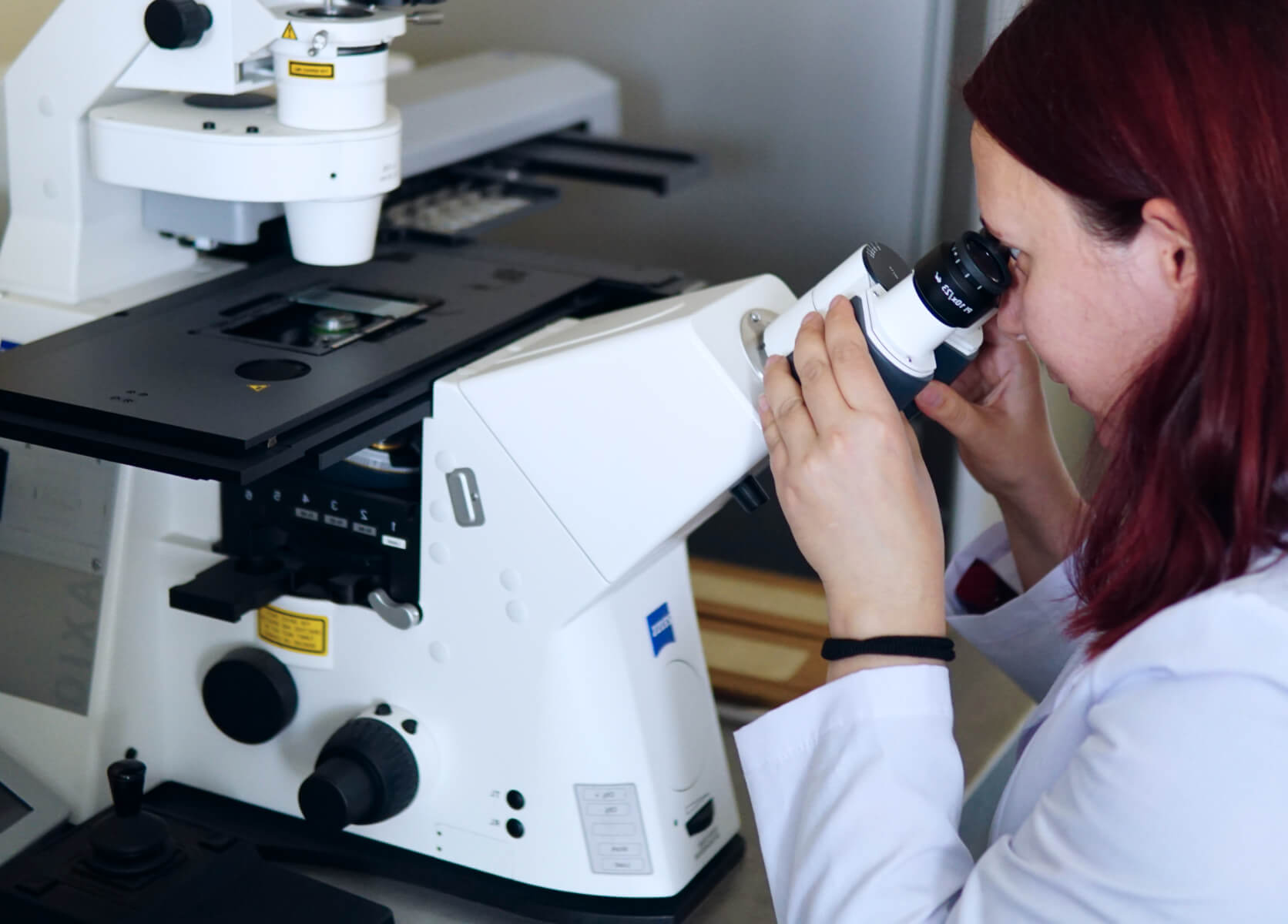The National University Complex for Biomedical and Translational Research (NUCBTR) is a strategic network of infrastructures for fundamental and translational biomedical research and includes partners from two of the largest medical universities in Bulgaria, the Medical University of Sofia and the Medical University of Plovdiv, as well as a number of hospital and research centers. At the core of the University Complex is the unification of the largest biobanks for the storage of biological material and clinical data in the country.
NUCBTR links existing resources, achieving a critical mass of expertise and technological opportunities, creating conditions for developing research in the field of molecular medicine, genetics and epidemiology in Bulgaria in the post-genomic era. The purpose of creating and developing the University Complex is to accelerate the transition between fundamental research and clinical practice in order to improve the prevention, diagnosis and treatment of the most important diseases for society.
Based on the international expert assessment, NUCBTR has been assessed as one of 4 infrastructure complexes, which are nationally significant infrastructures and have the potential to participate in pan-European research infrastructures. MMC and NUCBTR are included in the National roadmap of the scientific infrastructure in Bulgaria from its creation in 2010.

Molecular Medicine Center
In the biobanking sector within MMC unique collection of samples and clinical database of families and individual patients with neuro-muscular disorders; epilepsy; Gipsy families with affective disorders and epilepsy; Bulgarian trios, sporadic patients, and controls with bipolar affective disorders, heroin addiction is stored. They have been collected for more than 20 years and are the basis of the precise results obtained within research projects for studying the molecular basis of these serious diseases. In the recent years, due to the development of oncogenetic area, the biobank of MMC was enriched with tissue and DNA samples from various tumor types (colorectal and endometrial cancer, breast cancer, ovarian and prostate cancer, lung cancer, laryngeal carcinoma, glioma and esophageal tumors, etc.), as well as urine samples from patients with prostate cancer. In addition, cDNA/RNA tumors, circulating tumor cells and plasma biobank is developed. In the sector also are stored samples from women with gestational diabetes and controls with normal pregnancy; families with children suffering from kidneys and urinary tract diseases; families with ocular diseases (retinitis pigmentosa, congenital glaucoma, Leber atrophy, macular degeneration, etc.). deafness, etc. Up to date, the collection of MMC has over 11,000 DNA samples, more than 6000 samples plasma and serum, approximately 2,000 tissue samples from tumors and adjacent normal tissues, 700 healthy controls, 200 urine samples from patients with prostate cancer, 100 synovial fluid samples and more than 500 RNA/cDNA samples. The existing biobank gives the opportunity for new collaborations and cooperation, both at national and international level.
In the sector, a bar-code reading system and management of laboratory information (Laboratory Information Management System - LIMS) is installed, providing automated registration, tracking and management of laboratory samples and analyses.
In 2010, Medical University of Sofia represented by MMC was accepted as an associate member of BBMRI-ERIC (Biobanking and BioMolecular resources Research Infrastructure - European Research Infrastructure Consortium) - one of the largest research infrastructure projects in Europe, consisting of 54 members from 30 countries. The main objective of this pan-European infrastructure is to create a network of biobanks in order to expand the spectrum of stored tissues and materials, along with the development of a modern registry system and databases for clinical research. At the initiative of the Ministry of Education in 2011, MMC as the basic core of National University Complex in Biomedical and Applied Research (NUCBAR / infrastructure project DUNK 2009 01/2., NSF, MES) and Infrastructure for genomic, proteomic and metabolomics research, and computer simulation and design of drug candidates, was included in the national Roadmap for Research Infrastructures, as the Bulgarian representative of BBMRI (BG-BBMRI).
In 2018 Medical University of Sofia with the financial support of the Ministry of Education and Science of Bulgaria became an official member of BBMRI-ERIC. This will allow complementing and extension of existing resources and their full integration into the European scientific, ethical, legal and social frameworks, as well as the development of the Bulgarian biobanking network on core, created by MU-Sofia as coordinator.
Equipment:
The cryopreservation of the biological samples is ensured by 6 standard low-temperature upright freezers -20oC (400 L), 6 deep freezers -860C (600 L) with electronic alarm system for temperature control for storage of tissue and RNA bank, a separate liquid nitrogen freezing unit for tissues, including Cryogenic vessel Cryostor(110 L) (Thermo Scientific) and 3 Dewar Vessels (Thermo Scientific) for long term archiving, with specialized electronic alarm system for proper maintenance and control of the freezing unit. For the purposes of DNA/ RNA isolation the Biobanking Core is equipped with automated DNA/RNA isolation platform Chemagic Magnetic Separation Module. The quality control of DNA/ RNA sample has been ensured by 2 spectrophotometers Nanodrop ND-1000 (Thermo Scientific) and two Qubit® Fluorometers (Life Technologies).
The high throughput, sample tracking, work flow management and overall project management is guaranteed by the introduction of bar-code reading system and Laboratory Information Management System (LIMS).

